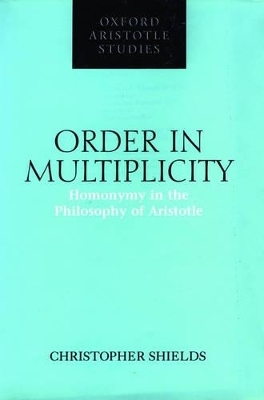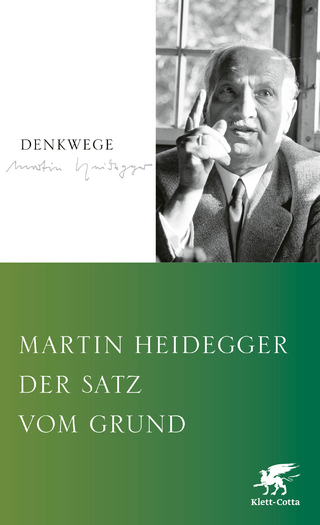
Order in Multiplicity
Homonymy in the Philosophy of Aristotle
Seiten
1999
Oxford University Press (Verlag)
978-0-19-823715-0 (ISBN)
Oxford University Press (Verlag)
978-0-19-823715-0 (ISBN)
Presents a full study of a key feature of Aristotle's philosophical and scientific investigations: his concern with the homonymy of certain concepts, that is, with the fact that a single concept stands for a multiplicity of kinds of thing. The author examines how Aristotle seeks order within this multiplicity, in a variety of areas of inquiry.
Aristotle attaches particular significance to the homonymy of many central concepts in philosophy and science: that is, to the diversity of ways of being common to a single general concept. His preoccupation with homonymy influences his approach to almost every subject that he considers, and it clearly structures the philosophical methodology that he employs both when criticizing others and when advancing his own positive theories. Where there is homonymy there is multiplicity: Aristotle aims to find the order within this multiplicity, and believes that doing so is crucial to scientific inquiry and philosophical progress.
Christopher Shields investigates and evaluates Aristotle's approach to questions about homonymy, characterizing the metaphysical and semantic commitments necessary to establish the homonymy of a given concept. Then, in a series of case-studies, Shields examines in detail some of Aristotle's principal applications of homonymy--to the body, sameness and oneness, life, goodness, and being. Shields's aim is not only to give a fuller understanding of Aristotle's methodology and to illuminate his specific doctrines in a variety of areas, but to show that this methodology remains fruitful today.
Aristotle attaches particular significance to the homonymy of many central concepts in philosophy and science: that is, to the diversity of ways of being common to a single general concept. His preoccupation with homonymy influences his approach to almost every subject that he considers, and it clearly structures the philosophical methodology that he employs both when criticizing others and when advancing his own positive theories. Where there is homonymy there is multiplicity: Aristotle aims to find the order within this multiplicity, and believes that doing so is crucial to scientific inquiry and philosophical progress.
Christopher Shields investigates and evaluates Aristotle's approach to questions about homonymy, characterizing the metaphysical and semantic commitments necessary to establish the homonymy of a given concept. Then, in a series of case-studies, Shields examines in detail some of Aristotle's principal applications of homonymy--to the body, sameness and oneness, life, goodness, and being. Shields's aim is not only to give a fuller understanding of Aristotle's methodology and to illuminate his specific doctrines in a variety of areas, but to show that this methodology remains fruitful today.
Christopher Shields is Associate Professor of Philosophy and Classics at the University of Colorado, Boulder.
PART I: HOMONYMY AS SUCH ; PART II: HOMONYMY AT WORK
| Erscheint lt. Verlag | 28.1.1999 |
|---|---|
| Reihe/Serie | Oxford Aristotle Studies Series |
| Verlagsort | Oxford |
| Sprache | englisch |
| Maße | 161 x 242 mm |
| Gewicht | 615 g |
| Themenwelt | Geisteswissenschaften ► Philosophie ► Metaphysik / Ontologie |
| Geisteswissenschaften ► Philosophie ► Philosophie Altertum / Antike | |
| Geisteswissenschaften ► Philosophie ► Sprachphilosophie | |
| Naturwissenschaften | |
| ISBN-10 | 0-19-823715-4 / 0198237154 |
| ISBN-13 | 978-0-19-823715-0 / 9780198237150 |
| Zustand | Neuware |
| Haben Sie eine Frage zum Produkt? |
Mehr entdecken
aus dem Bereich
aus dem Bereich
eine philosophische Reise
Buch | Softcover (2024)
Goldmann (Verlag)
CHF 19,55


